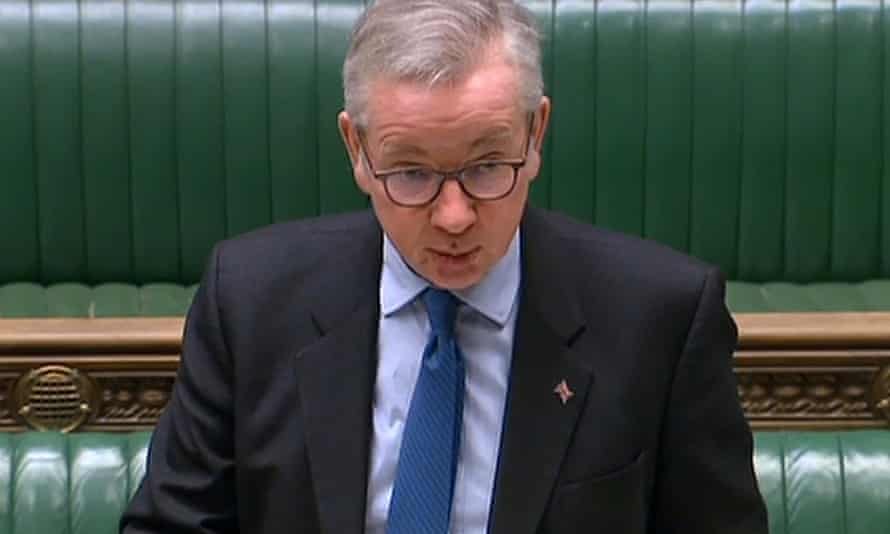TThere was a distinctive moment here, at the start of the Covid-19 pandemic, that clearly encapsulated the mistakes and confusion of Britain’s early efforts to combat the disease, says Mark Woolhouse. At a 10th briefing in March 2020, Cabinet Minister Michael Gove warned that the virus does not discriminate. “Everyone is at risk,” he announced.
And nothing could be further from the truth, argues Professor Woolhouse, an infectious disease expert at the University of Edinburgh. “I’m afraid Gove’s statement was simply not true,” he says. “In fact, this is a very discriminatory virus. Some people are much more at risk than others. People over the age of 75 are at a staggering 10,000 times greater risk than those under the age of 15. “
And it was this lack of understanding of the wide variations in individual responses to Covid-19 that led to Britain’s imperfect responses to the onset of the disease, he argues, mistakes that included the imposition of a lasting national lockdown. This is a strategy that Woolhouse, one of the nation’s leading epidemiologists, describes as morally wrong and highly damaging in his next book, The year the world went crazy: a scientific memoir.
“We did serious harm to our children and young adults who were deprived of their education, jobs and normal existence, in addition to suffering damage to their future prospects, while they stayed behind to inherit a record mountain of public debt,” he said. argues. “All this to protect the NHS from a disease that is a much, much greater threat to the elderly, frail and sick than to the young and healthy.
“We were mesmerized by the once-in-a-century emergency scale and only managed to make the crisis worse. In short, we panicked. This was an epidemic crying out for a precision public health approach, and the opposite turned out. “

Instead of imposing blanket blockades across the country, the government should have adopted measures designed to make contacts safe, says Woolhouse. “You can see from the UK data that people were reducing their contacts with each other as cases increased and before the lockdown was imposed. That, along with safe measures for Covid, such as masks and tests, would have been enough to control the spread. “
The largely voluntary behavior change worked in Sweden and should have been allowed to progress in the UK, Woolhouse argues. Instead, we advocate a forced national shutdown, in part because, for the first time in history, we could. Enough business is now being conducted online to allow much of society to function quite well, through video conferencing and online shopping. “But it was a lazy solution to a new coronavirus epidemic, as well as a hugely damaging one,” he adds.
However, Woolhouse strives to reject the ideas of those who advocated for the total openness of society, including academics who backed the Barrington Declaration, which proposed that the Covid-19 virus be allowed to circulate until enough have been infected. people to achieve herd immunity.
“This would have caused a much larger epidemic than the one we finally experienced in 2020,” says Woolhouse. “It also lacked a compelling plan to adequately protect the most vulnerable members of society, the elderly and the immunosuppressed.”
Instead, the country should have done much more to protect the vulnerable. More than 30,000 people died of Covid-19 in the nursing homes of Great Britain. On average, each household received an additional £ 250,000 from the government to protect themselves against the virus, he estimates. “Much more should have been spent on providing protection to nursing homes,” says Woolhouse, who also criticizes the government for offering nothing more than a letter telling those who protect elderly parents and other vulnerable people in their lives. own homes to take precautions.
The nation could have spent several thousand pounds per household on providing routine tests and helping to implement safe Covid measures for those who protect others and that would still have amounted to a tiny fraction of the £ 300 billion we eventually spent. in our response to the pandemic. he argument. Indeed, Woolhouse especially despises the negligence of “protectors” such as home-based workers and informal caregivers. “These people stood between the vulnerable and the virus but, for most of 2020, they got minimal recognition and received no help.”
Britain spent a fortune suppressing the virus and will continue to pay back debt for generations to come, he adds. “On the contrary, we spend almost nothing to protect the vulnerable in the community. We should and could have invested in both repression and protection. In fact, we chose only one. “
And Woolhouse is emphatic that more lockdowns are not the way to deal with future waves of Covid-19. “The closures are not a public health policy. They represent a failure of public health policy ”, he affirms.
On the other hand, the country needs, very quickly, not to be surprised by new variants and not to respond to each one in an ad hoc way. “We should agree on a sliding scale of interventions and trigger points to implement them. With omicron everything feels a bit chaotic. We need better planning and preparation for when the next variant arrives, as it surely will. “
www.theguardian.com
George is Digismak’s reported cum editor with 13 years of experience in Journalism